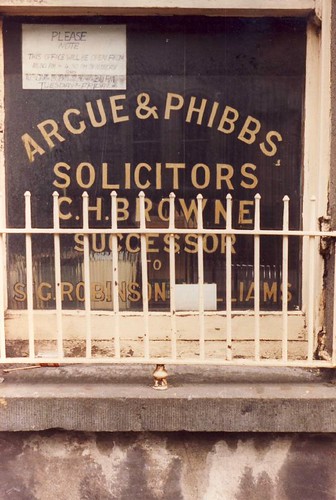Five ways to become more agile and responsive to your customers’ needs
April 11, 2014Is gossip holding back your employee engagement efforts?
April 25, 2014
Regulatory changes in the UK legal market have allowed supermarket chain The Co-operative, haulage company Eddie Stobart and insurance provider Direct Line to adopt alternative business structures (ABSs) and offer legal services in a range of areas. Could these firms challenge the magic circle in pure revenue terms one day? Possibly.
If we assume that entry into the magic circle is broadly measured by revenue, then one brand that could potentially be a challenger is Direct Line, which claims to have around eight million policyholders. Its stated intention is to provide customers with legal advice on personal injury and non-injury claims, including debt recovery, employment and contract matters. But, imagine if it were to add legal services like conveyancing to its portfolio: it could then be knocking on the doors of the magic circle.
Consider this scenario. If we assume, on the back of the recovery in the housing market, that 15 per cent of Direct Line’s policyholders move home using its conveyancing services and are charged the average conveyancing fee, its annual fee income could reach circa £1bn. This would put Direct Line within spitting distance of the magic circle.
The larger firms would probably argue that these upstart legal service providers will have little impact on their revenues, as they do not tend to compete in the same areas of law. However, this might be a short-sighted view. Many of the larger ABS firms have brands that are known and trusted in the minds of potential clients. This presents a very real competitive threat to most law firms, which need to start responding if they are to survive and thrive.
Branding and voice
My friend and colleague Philip de Lisle was talking to the senior partner at a large law firm the other day about this very issue and he suggested that one of the biggest competitive challenges that the firm faced was that it did not have a voice in the wider market because its brand wasn’t known outside of legal circles.
Thus, in the face of increasing competition, law firms should be developing their brands and voice in the market. This does not mean that they should just commission a refresh of their logo, website, letterhead, marketing materials and business cards. They must go much further and understand that their brand is not just about a logo and tagline. It’s about following the four C’s: character, client experience, collateral and conversation.
- Character. What is the real character of a firm and how does that manifest itself in its culture, values, vision and mission? What a firm says it is and the reality need to be aligned.
- Client experience. Every law firm projecting an image of itself creates a brand promise. This has to be fulfilled by partners and employees at all levels on a day-to-day basis. Their actions, attitudes and the service they provide are the things that clients will remember and talk about.
- Collateral. The firm’s logo, website, letterhead, marketing materials and business cards are physical manifestations of the brand and convey its image and message. So, they must be aligned with the firm’s character and client experience.
- Conversation. A tremendous amount of time, effort and resources can be put into trying to create a strong brand. But, if all of these efforts fail to influence the conversation in the market, they will have been wasted. Ultimately, delighted and satisfied clients are the best source of new clients. Delivering anything less than that has the potential to do huge damage to new business development and the health of the brand.
Only those firms that are comfortable with and embrace change will weather the storm.
This post was originally published in the Feb 2014 issue of Managing Partner. You can check out the original here (beware it’s behind a paywall).
Photo Credit: nicksarebi via Compfight cc




6 Comments
I think a lot of solicitors should be worried Adrian, but probably not the magic circle, different clients, different expertise and different expertise and a different market.
But if you work for Joe Bloggs Conveyancing it is a very different story.
James
Hi James,
I think you are right that many should be worried and many aren’t doing anything about it. That’s more worrying. The magic circle reference was very much tongue in cheek 😉
Adrian
Ahh, clever humour. I didn’t come out of that looking too clever did I?
Sometimes I’m not known for my delivery so I’ll take part responsibility too 😉
Hello Adrian,
Those standing outside the arena are fond of calling for change especially when they do not have to change. And they earn their living from getting others to change.
It is a different case for those in the arena immersed in the hurly burly of life. Most of those are simply doing their best to deal with that which shows up and demands attention. Furthermore, the logic of the arena is different from the logic of the spectator in the stands.
Further, most of the people that I have come across in organisational life are ‘technicians and operators’. That is to say that they are good at turning the handle, executing existing ways of doing things, and troubleshooting operations. Rare are those who ‘strategise’ – who put their head above the day-to-day or the industry dogma (‘the earth is flat’), see possibilities, and are willing to take a risk. This explains why there is only one Columbus.
It occurs to me that law firms especially those which specialise in B2B are safe for a long time. Why? Big business buyers are paid to play it safe. That means sticking with the big players, and existing ways of doing things.
All the best
maz
Maz,
Noises from the B2B business market suggest that there are a lot of changes afoot in big business as legal departments, largely because they are a cost and not a revenue generating function, look to law firms to operate in different ways.
Adrian